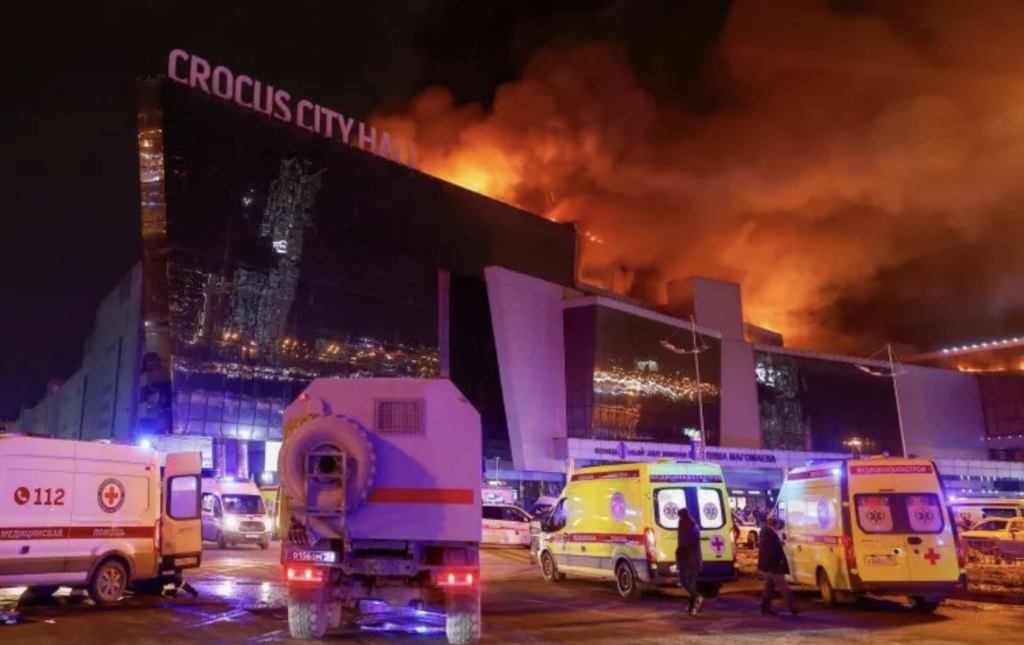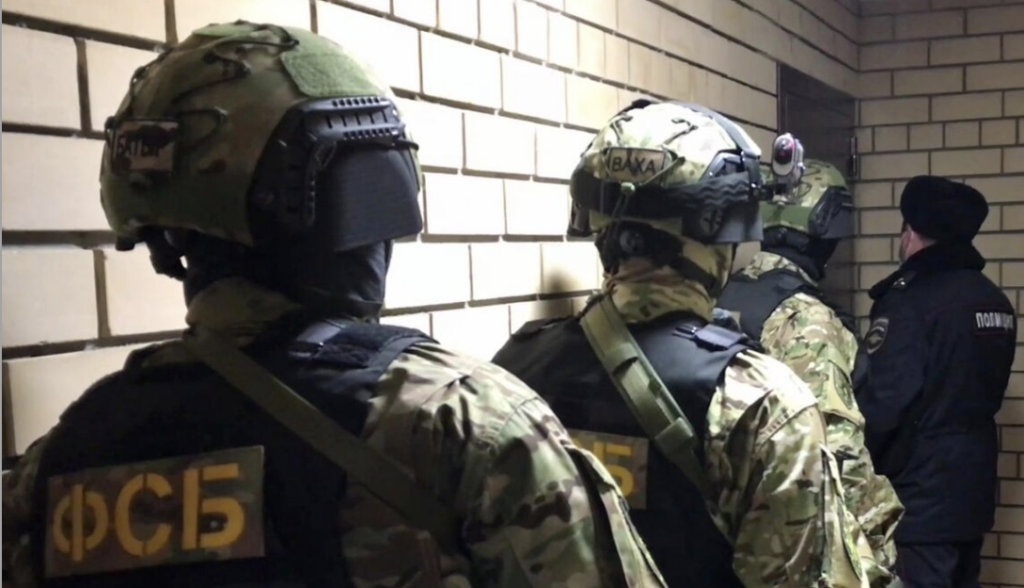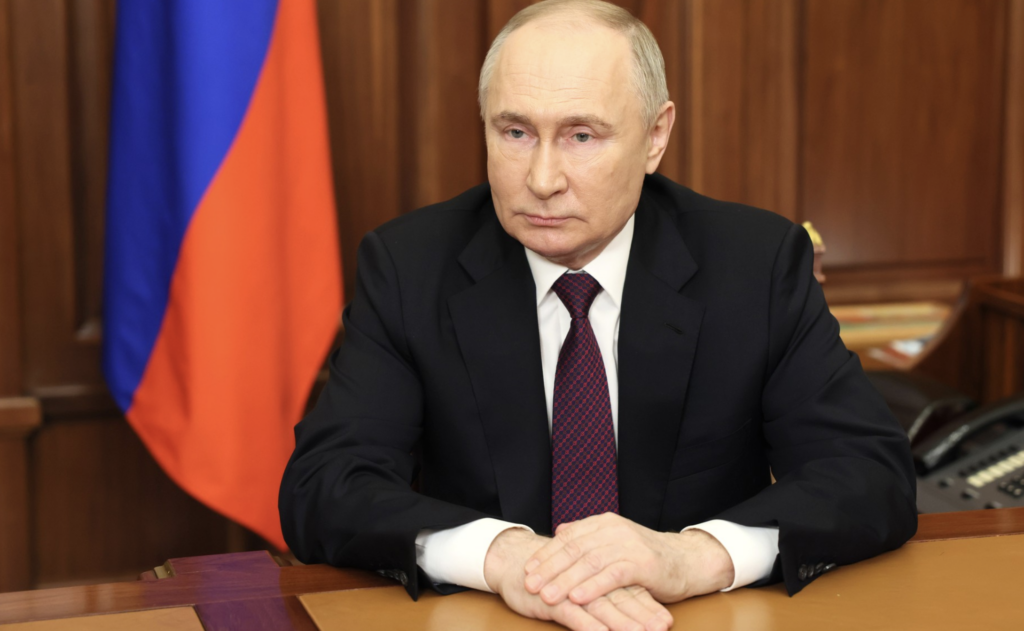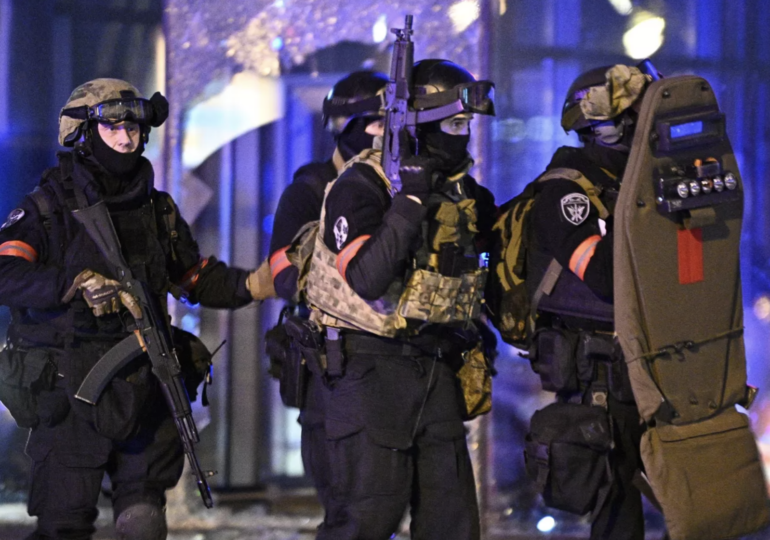Three months after becoming Russia’s president on August 12, 2000, Vladimir Putin faced a crisis that shaped his entire political evolution, turning him into today’s authoritarian, cynical, and ruthless leader.
The nuclear-powered submarine Kursk, with 118 crew members, sank in the Barents Sea, northern Russia. There were no survivors, and Putin was forced to deal with the first major political crisis due to protests from the relatives of the deceased and negative reactions from the press.
His popularity at the time, being at the beginning of his first term and having genuine support among Russian citizens, saved him.
However, facing public opinion led him to take control of the most important television channels, newspapers, and news websites and severely restrict freedom of expression.
Almost a quarter of a century later, the terrorist attack on Friday evening, carried out in a mall in Moscow, finds Putin still in power after winning presidential elections, much less popular, and in a tense relationship with the Western world.
American Warning
"The Embassy is monitoring reports of imminent plans by extremists to target large gatherings in Moscow, including concerts, and American citizens should be advised to avoid such gatherings over the next 48 hours," stated the U.S. diplomatic representation in the Russian capital on March 7, 2024.
The statement includes the following keywords: imminent, concerts, extremists, gatherings, Moscow.
So, American diplomats received at least one report from intelligence services warning of an extremist group on Russian territory preparing a terrorist attack at a concert in the country's capital.
"I request the FSB, as well as other security services and law enforcement agencies, under the coordination of the National Antiterrorism Committee, to significantly increase counter-terrorist activities in all directions, given that our enemy is strong and dangerous. Our adversary has a wide range of informational, technical, and financial capabilities," said Vladimir Putin at the FSB meeting on March 19.
Russia, Closely Watched by the West
In the statement above lies the communication strategy adopted by the Kremlin shortly after the attack when Putin, through a public intervention, tries to evade responsibility, blaming Ukraine and Western states for the terrorist attack.
On March 7, a week before the presidential elections in Russia, the U.S. Embassy in Moscow issued a terrorist alert that the Kremlin only took seriously four days after Putin received, following falsified elections, a new presidential term and met with the FSB.
But the feared Russian intelligence agency failed to prevent the attack at the mall in Moscow, where a group of ISIS terrorists killed over 115 people, injuring around 150.

Putin and the KGB successors are facing difficulties with the Russians and cannot hide the fact that they were warned about the possibility of the attack.
Furthermore, the U.S. Embassy's statement shows how thoroughly Russia is monitored by American and NATO agencies, such that allied intelligence services are more effective than the FSB and GRU, the oversized security structures that keep Putin in power.
An Act of Strategic Declassification
"What the CIA does with the information it collects is a process that has undergone... modifications. Strategic declassification, that is, the intentional public disclosure of certain secrets to undermine rivals and mobilize allies, has become an even more powerful tool for political decision-makers," announced William Burns, CIA director, in an article published at the end of January.
"Using this strategy does not mean recklessly endangering the sources or methods used to collect information, but it means judiciously resisting the tendency to keep everything secret," emphasized the head of the American intelligence agency.

If the Russian authorities had reacted to the American alert, they could have thwarted the attack or at least limited the losses. The government did not raise the security level, did not increase security at vulnerable targets, and did not even inform the population of the possibility of an attack and the necessary precautions to take.
The lack of reaction from the Kremlin shows how much Russia has changed since the moment Putin plunged the country into war.
Protecting the population has taken a back seat, with the defense of the authoritarian president taking precedence.
The intelligence services have transformed into repression units, monitoring political dissidents and spreading false information.
All these duties of preserving the dictatorial system at all costs have weakened the institutions that can no longer protect the people.
White House officials announced that in March they transmitted all data they had about a possible terrorist attack to the Russian authorities, according to RIA Novosti, a news agency in Moscow.
A Turning Point
The tragic attack is a "black swan," as it was termed by mathematician Nassim Taleb, a major and surprising event that can change the entire evolution of a social, economic, or political system due to its impact.
In a dictatorship like the one in Russia, such a black swan event can have more dramatic effects because of the regime's resistance to change.

In a democracy, resignations, elections, citizen pressure, and improving public policies help society survive a major crisis.
Vladimir Putin has a war on his hands that he himself has provoked and that is spreading in Russia, facing multiplying enemies threatening the state's integrity.
Such a crisis puts the entire power system at the Kremlin in balance, and since the tragedy, maintaining the current internal power dynamics has become impossible.

